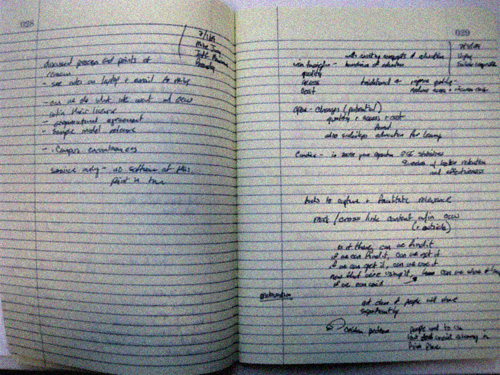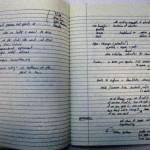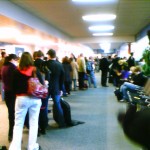Trip Reports
[fusion_builder_container hundred_percent=”yes” overflow=”visible”][fusion_builder_row][fusion_builder_column type=”1_1″ background_position=”left top” background_color=”” border_size=”” border_color=”” border_style=”solid” spacing=”yes” background_image=”” background_repeat=”no-repeat” padding=”” margin_top=”0px” margin_bottom=”0px” class=”” id=”” animation_type=”” animation_speed=”0.3″ animation_direction=”left” hide_on_mobile=”no” center_content=”no” min_height=”none”]
So, I’ve known about the idea of trip reports for some time now. I even thought about suggesting them as a requirement for conference attendance while at COSL. (I did realize that by making them mandatory, you sort of lose the value in doing them. I know organizations that require them, and for the friends and colleagues that have to do them they’ve become a chore. Sort of like being required to read a book for English class in school. That’s the best way to ruin the experience of the book.)
I’ve been writing trip reports for the travel to meetings and conferences I’ve done at OEIT and have been enjoying doing it. It does take awhile. For my recent around the world jaunt, I sent out the report in four segments and worked on the content off and on over five days.
What are the elements of my trip reports:
- Recap of the formal reason I attended the event. Did I give a presentation, participate in a meeting, etc. If it was a presentation, I’ll also include a link to the presentation(s) that I’m sharing on Slideshare.net.
- A brief, introspective analysis of the formal reason for attending the event.
- A recap of the discussions I had, listed by topic area, including an analysis and relation to the projects I’m working on, or areas I think we should be working on.
Here are the pluses:
- Allows you to share with your team/group/supervisor/boss what you saw and heard. There’s an accountability mechanism here, but if it’s voluntary, I think it’s more about open sharing of what you learned.
- Helps you to remember the important discussions you had and more importantly their implications (because you have to write them down and explain them to others).
- They help demonstrate the value of the meeting or event. If you didn’t get anything out of the event, why did you go? And why should you go in the future? (This is a different thing I’ve been tracking over the last couple years. Why am I going to certain conferences? What am I learning from them? And, was the trip worthwhile?)
Here are the minuses:
- They can be time-consuming to write, and can get forgotten when you get back to the office.
- They can be perceived of as just something else for your team/manager to read. (But keep in mind they should be useful, and written to communicate versus just document. If folks still have the opinion that they’re not useful, then you’ve got other problems!)
This post was inspired by reading these blog posts: How To Justify Attending A Conference and How to Strategize Your Trade Show Trip for Success.[/fusion_builder_column][/fusion_builder_row][/fusion_builder_container]




Trackbacks & Pingbacks
[…] Reports-Thumbs UpA while back I wrote a post about Trip Reports, and just having returned from another trip, I’m getting more and more convinced […]
Comments are closed.